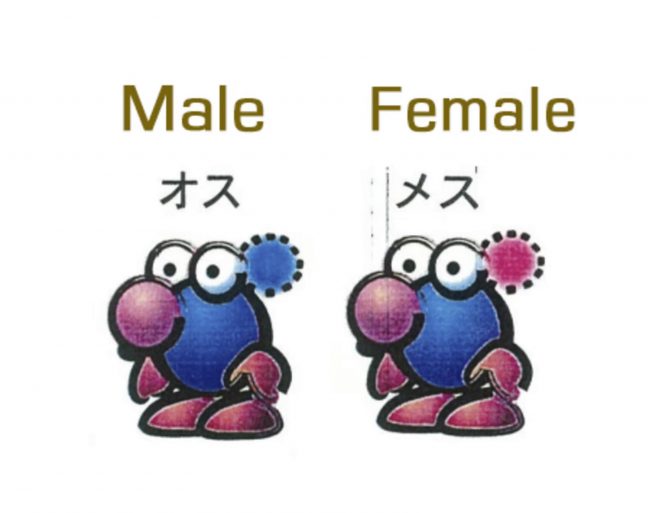Nintendo devs reveal Pikmin origins, started out on N64
The original developers behind Pikmin have discussed the game’s origins, including how it was originally being developed for the N64.
Masamichi Abe, who was director at the time, said in a new interview published today that “discussion of this project started during the transition from Super NES to Nintendo 64, so we had a strong aspiration to utilize its ability to display a large number of characters on screen.” Shigefumi Hino, who also was director, added that it was originally “envisioned a game that would control a lot of characters with AI.” The interview includes a number of concept art / images as well, and character designer Junji Morii talked about being inspired by Tim Burton.
Abe, Hino, Morii, and Shigeru Miyamoto shared the following on Pikmin’s origins, N64 ties, and more:
Abe: Hino-san originally came from an artist background, so he was handling character design and world creation, while I was in charge of game mechanics and stage design. This project wasn’t initially an action game, was it?
Hino: Yes, that’s right. Back then, we envisioned a game that would control a lot of characters with AI. The game we had in mind included creatures with AI chips in their heads to make them think a certain way, and you would control them by swapping their chips. So, players would control them by assigning “thought chips,” such as “combat,” “heal,” or “help friends,” to each of them. As they explored the map and gained more experience, their chip capacity would increase. In other words, they’d become smarter. At the same time, we added personalities such as grumpy and cowardly via “emotion chips,” and depending on which emotion chip the character had, the response, such as “attack” or “defend,” would change. And so, we were experimenting with these kinds of prototypes with Kando-san.
Kando: I was still a newbie programmer in my first year around that time. After joining Nintendo, I was assigned to this team and got a mysterious specification document from Hino-san, completely out of the blue. (Laughs) I devoted myself to experimenting with what kind of actions I could apply to a large number of characters with AI.
Morii: I joined the team as a designer about a year after Kando-san. By then, the game was already bustling with little creatures.
Hino: At the time, our vision was to have a top-down view of the game on screen, so we made the gender and personality of each character identifiable from what’s on their head.
Wow… That’s worlds apart from the Pikmin we all know.
Hino: It looks a bit Yoshi-like, don’t you think? (Laughs) But we felt it lacked impact as a character.
Miyamoto: There were also conversations about making a character that girls around the age of high school would find cute, right?
Abe: Yes. So then Morii-san drew a pile of sketches, and this design was selected by unanimous decision.
Suddenly it looks more like the Pikmin we’re familiar with. I notice that having a mark on its head is aligned with the initial concept.
Morii: I can’t recall why we put a leaf on its head…but since the character is tiny, maybe I thought that it needed something to help it visually stand out.
Miyamoto: I was strangely attracted to this design. I liked the idea of plants walking. We were saying things like, “It would be cute if it sucked up water from the leaf on its head.”
Was there a particular inspiration that led to this design?
Morii: Back then, I really liked the world of Tim Burton, so I wanted the designs to not just be cute, but also give a sense of eeriness, or some emotional weight. That’s why I was drawing the sketches like this, with a style that layers scribbling lines.
Hino: Nintendo games up to that point were strongly associated with the bright and vibrant designs of the Super Mario and the Legend of Zelda series. That’s why I wanted to take a bold step and depict a somber, mature, and mysterious world. So, we said, “Let’s watch a movie together for inspiration!” and the choice was an animated movie called Fantastic Planet. We all had puzzled looks on our faces while watching it. (Laughs)
This movie you mentioned seems memorable in many ways – the kind that gives you nightmares. So, this was used as inspiration for Pikmin?
Hino: Since we were creating a game that deals with living creatures, we also read a book by Richard Dawkins called The Selfish Gene.
Miyamoto: Oh, I’m not sure I’ve read that.
Hino: Well, it had lots of information about the weird ecology of living things, so I read it to fuel my imagination. But it was too difficult for me to understand… (Laughs)
Miyamoto: We watched all kinds of films for inspiration, like indie films from Europe or artistic films you wouldn’t find in regular video stores. It was an interesting time with lots of experimental footage coming out with innovative modes of expression, like ones that deliberately layered the same images repeatedly.
Kando: Speaking of on-screen expression, when we were first developing the game for Nintendo 64, we expressed the idea of many characters being there by combining flat boards called billboards to create characters, thereby lightening the processing workload. When the platform changed to Nintendo GameCube, we were finally able to express each individual character as a 3D model.
The original Pikmin games are available on Switch now, with Pikmin 4 following this Friday. Meanwhile, you can read the full interview here.




